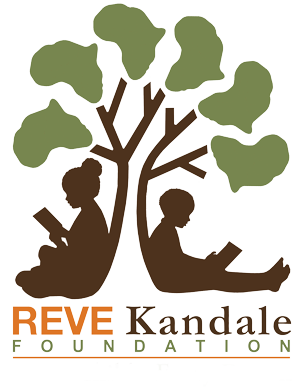Joyful Ami du Livre students
Happy New Year!!! With the new roof completed on the third block of classes, Colette returned to Kinshasa in late October with a long list of items needed to begin work on the fourth block. The list included many items including plywood, cement, corrugated roofing material, rebar, and nails. Unlike the US the items are all located in different parts of Kinshasa and are of differing qualities and prices.
Traversing Kinshasa to find all the items is a complicated process. With Frederick in tow, they began the long process of assessing the various products available, and the complex negotiations to obtain each item.
In Kandale there has been a whole other level of tasks. The brick making has continued, but in anticipation of the new walls for the fourth block, there is a need for more red clay and rocks. 375 wheelbarrows of clay have been carried by students and community members to the job site. It has become part of the daily routine with everyone pitching in.
In mid-December the materials were loaded onto a truck and it headed out to Kandale. The truck arrived in Kikwit without incident and they spent the night. The next morning they headed out to Kandale bright and early. As described in previous Communiqués, it is a challenging route. The truck made it across the Kwilu and into Gungu. Unfortunately the driver was not familiar with the new route to Kandale and they got stuck in a town called Kimeso about 15 kilometers from Kandale.
When the truck did not arrive in Kandale, the staff sent out a search party. Once the truck was located a crew of ten people struck out with shovels to rebuild the road. After several days of digging and three flat tires the truck was able to extricate itself from the deep ruts caused by the rain, but not before another truck sped past them, requiring the crew to repair the road once again. ‘No good deed….’
The girls have made the dorms their homes, bursting with color from their new quilts.
All nine completed classrooms have been populated with eager students and the Institut Gufwa Gubila has been tearing down the old classrooms, made out of sticks and mud. Merveille has been invited to collect the old metal sheets to repurpose as a contribution from the school.
Presently the plan is to visit Kandale in March for two weeks with the Board. The Board will get a first hand look at the ongoing progress. With several new tukuls to choose from, the Board should be very comfortable. Colette will return again in May to oversee the building of the fourth block of classrooms.
One of Colette’s priorities for her visit in March will be to meet with community members and organize the 4th Regional Football Competition in May.
One last proverb, 'the flapping of the wings of a butterfly can be felt on the other side of the world.' Never has a proverb been more true.



